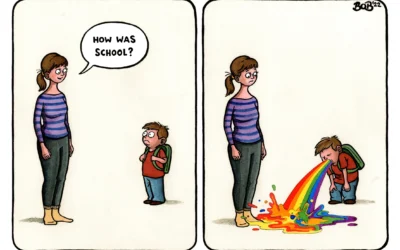November 24 marks the anniversary of fifty of Hollywood’s leading executives and moguls firing the Hollywood Ten. These ten filmmakers had been cited for contempt of Congress for refusing to divulge their political affiliations to the House Un-American Activities Committee [HUAC] investigation into communist infiltration in Hollywood.
The anniversary of the Hollywood blacklist against the Hollywood Ten and other communists in Hollywood has brought an outpouring of sympathy and apologies to the “victims,” along with incessant moral lessons from the media about this “dark” period in American history.
This much is true: Morality and justice are at issue. But the story has been twisted and the characters grossly miscast. The screenplay as written by politically correct Hollywood should be titled “Three Big Lies.”
Lie Number One: By requiring them to testify and then jailing them for refusing, the House Un-American Activities Committee violated the First Amendment, free speech rights of the Hollywood Ten.
The truth: No one interfered with their freedom of speech.
In fact, freedom of speech was not even an issue. HUAC was investigating a question of fact, the fact being membership in the Communist Party. The Committee did not ask anyone whether he believed in communism, but asked only whether he had joined the Communist Party. By joining the Party (an undisputed fact), the filmmakers were not merely making an ideological statement but were agreeing to take orders to commit actions — criminal and treasonable actions, since the Party, and the Soviet government it served, was openly dedicated to the overthrow of the U.S. government. Therefore, there was a national security reason for the Committee to determine membership in the Party. In notes to herself prior to testifying as a “Friendly Witness” in 1947, Ayn Rand wrote that “Under American law, there is no such thing as a political crime; a man’s ideas do not constitute a crime, no matter what they are. And precisely by the same principle, a man’s ideas — no matter what they are — cannot serve as a justification for a criminal action and do not give him freedom to commit such actions on the ground that they represent his personal belief.” Legal issues aside, there is an obscene irony in the Communist writers complaining that their right to freedom of speech was violated, since that right was precisely what the Communist Party was out to destroy.
Lie Number Two: The Hollywood Ten were persecuted by being refused jobs.
The truth: They were denied employment by executives who were exercising the right to hire whom they wished — a fundamental right in a free society.
It was within the employers’ right (and self-interest) not to hire writers who wanted to use their positions to eliminate all private property and private business. What the writers wanted — in refusing to testify — was the “right” to hide their ideology on the grounds that, were it known, they’d be fired. In other words, they wanted the “right” to defraud their employers. In a free society, there is a private right to boycott (which the Hollywood leftists used against hundreds of anti-Communists). The right to freedom of speech prohibits the government from interfering with the expression of ideas, and that means that an employer cannot be forced to propagate ideas he’s opposed to.
Lie Number Three (the biggest lie): The blacklisted writers were humanitarian idealists.
The truth: Their “ideal” was the sacrifice of the individual to the collective, a moral viewpoint endorsed by Marxism and put into practice by the Soviet government.
It was an “ideal” that destroyed millions of human lives. The Communist Party championed by the Hollywood Ten was the same Party that — under the leadership of Joseph Stalin — exterminated millions of peasants in the Ukraine. The “persecuted” writers dutifully paid their dues to the Party whose reign of terror included murdering or banishing to Siberia anyone who remotely threatened its power. The Hollywood Ten littered their movie scripts with Soviet propaganda, the same Soviets who signed a non-aggression pact with Adolph Hitler. While the Hollywood Communists and apologists talked of peace, brotherhood, and workers’ rights, their spiritual masters were perpetrating what is arguably the most murderous tyranny in world history, its victims estimated at 20-40 million people — not including the tens of millions relegated to a sub-human existence. Far from being pitiable victims, the Hollywood Ten and their followers have the blood of millions on their hands.
An intriguing question remains: Why is Hollywood so intent on perpetuating these Big Lies? Why are we asked to apologize to apologists of mass murder? Why are the opponents of tyranny still portrayed as hysterical witch-hunters? The answer lies in ideology. The Hollywood Ten openly hated America and the individualism on which it is based. Little has changed but the concretes. The Soviets are gone, but Hollywood’s anti-capitalist, left-liberal political agenda lives, now in such forms as animal rights and environmentalism. Selling “The Big Lies” helps Hollywood to keep alive the fantasy that the Left is the victim rather than the perpetrator of injustice.
Copyright 1997 Ayn Rand Institute. All rights reserved. That the Ayn Rand Institute (ARI) has granted permission to Capitalism Magazine to republish this article, does not mean ARI necessarily endorses or agrees with the other content on this website.




